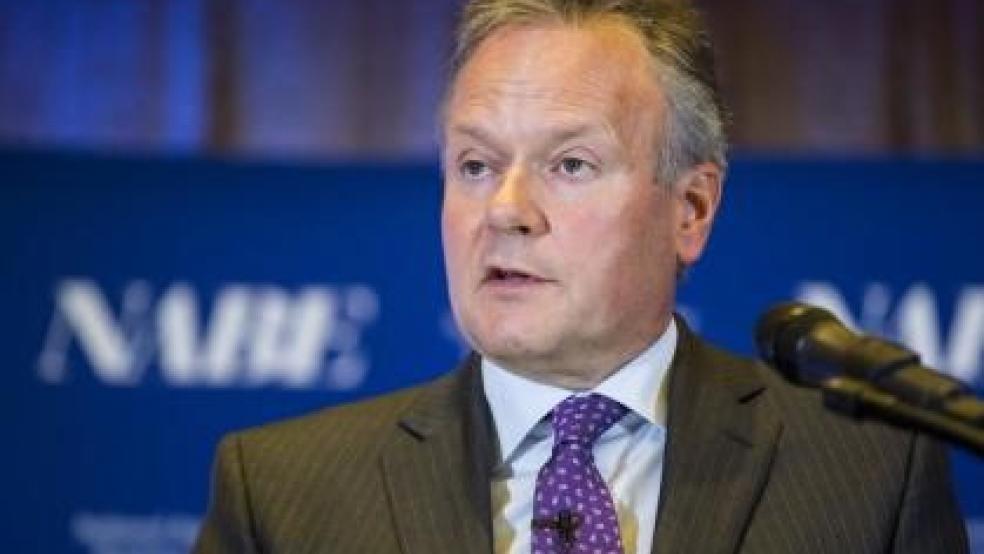OTTAWA (Reuters) - Canada's central bank said on Wednesday it will take a wait-and-see approach to plans by the country's newly elected Liberal government to run deficits, noting it will take time to see how quickly and deeply it impacts the economic outlook.
At the same time, the Bank of Canada painted a picture of an economy pulling out of its first-half downturn, noting it had not yet seen even half of the effects of its two interest rate cuts this year.While the Bank of Canada downgraded its GDP growth forecasts for 2016 and 2017, to 2.0 percent and 2.5 percent respectively, those figures would be a rebound from this year's soggy 1.1 percent forecast, and did not account for a promised fiscal jolt.Liberal Prime Minister-designate Justin Trudeau, victor in Monday's election, has promised deficit spending of up to C$10 billion ($7.6 billion) a year, or 0.5 percent of gross domestic product, for three years to try to kick-start the economy. Bank of Canada Governor Stephen Poloz noted the impact of the stimulus depends on actual follow-through."You may announce, let's say, a fiscal change, say an infrastructure spend. You may announce it and then it may take several months for it to actually get contracted, permits issued ... we'd be analyzing that on an ongoing basis," he said.Poloz made the remarks after keeping Canada's benchmark interest rate unchanged at 0.50 percent.The Canadian dollar [CAD/] fell when the rate statement and accompanying Monetary Policy Report (MPR) came out, as markets apparently interpreted it dovishly.But analysts said the planned deficits would help stave off new rate cuts."If there was any positive probability of them cutting again this probability disappeared given the fact that we will have fiscal stimulus coming," CIBC World Markets senior economist Benjamin Tal said.The central bank tends not to account for government fiscal plans until they are enacted. However, Poloz said it was safe to say it would take them into account in January's MPR, though the extent would depend on how concrete things are. Economic growth in Canada, a leading energy exporter, has been hurt by cheaper oil, but the central bank said the bottom line was "that economic momentum is building in Canada.""In non-resource sectors, the looked-for signs of strength are more evident, supported by the stimulative effects of previous monetary policy actions and past depreciation of the Canadian dollar," the bank said.($1=$1.31 Canadian) (Additional reporting by Andrea Hopkins, Alastair Sharp, Euan Rocha, John Tilak and Susan Taylor in Toronto and David Ljunggren in Ottawa; Editing by W Simon, Jeffrey Hodgson and Paul Simao)Bank of Canada takes wait-and-see approach to Liberal deficits

JOSHUA ROBERTS



